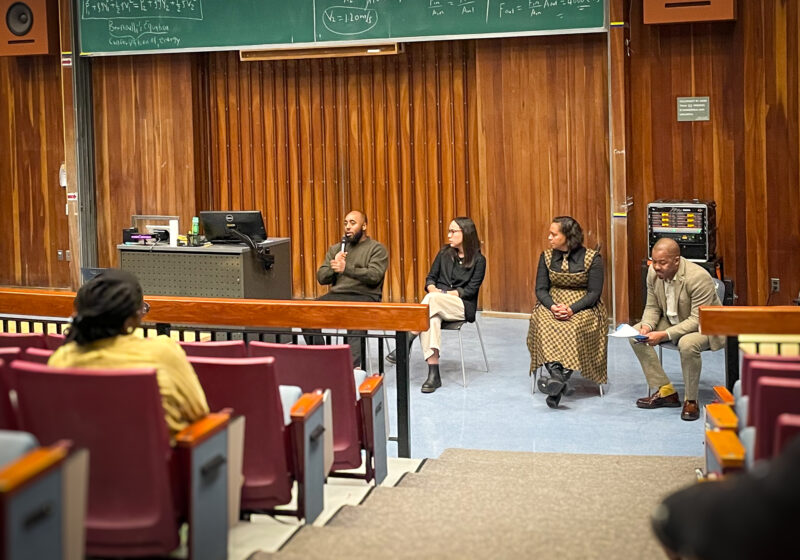According to the Center for Study Abroad and Interdepartmental Programs, “About one-third of each graduating class completes coursework overseas where [the program] places you in an intensified learning environment in another country.”
This year, many students have found themselves rejected from certain study abroad programs due to unexpected over-enrollment. One of these more popular programs is the Council on International Educational Exchange program in Prague, Czech Republic.
To participate in the 16-week program in the 2008 spring semester, applications technically needed to have been turned in by Oct. 15, although interest in the program caused it to fill up over two weeks ago.
Junior Ashley Sinkin was told online that she was rejected from the program during the second week of October. Before being rejected, the CSA told her that the program was quickly reaching quota and that she really needed to get her application in as soon as she could but even handing it in weeks before the deadline was not soon enough.
“The Study Abroad Office led me to believe that it was a guarantee – it was really a shock when I didn’t get in,” Sinkin said.
Sinkin is now planning on studying in Rome in the spring and is luckier than many others. “I took it upon myself to apply to a back-up program, but I know a lot of others who didn’t and got rejected,” she said.
Students like Sinkin were told that the program and its waiting list had already maxed out and that their applications were not going to be considered.
Unfortunately, CIEE programs, such as the Prague program, have a strict admission policy in which applications are accepted on a first-come, first-served basis. Many recent applicants to this program were unaccepted due to increased enrollment.
“Unfortunately, a few of my friends who were very qualified did not get in because the program and waiting list were full more than two weeks before the program deadline,” junior Rachel Bari Shapiro said.
In this program, students with a background in economics or history are hosted by Charles University in Prague. The courses offered by the University are in fields such as economics, politics, history, culture and language and are taught in English, with no prior language requirement.
Other study abroad programs that are partnered with the College include the Institute for the International Education of Students. IES provides 24 study abroad programs for UR students. This program group, on the other hand, has not seen as many applicant rejections.
Upon deciding to study abroad, students find that applying to the study abroad program is a two-stage process. The first stage involves completing an internal application for study overseas and the second stage deals with filling out the applications for the specific programs in which the student hopes to participate.
Study abroad proposals are submitted electronically. The deadline for spring studies is Sept. 15, and for the fall or full-year program, the deadline is Feb. 1. The student’s proposal is evaluated to ensure that the individual has established himself or herself academically prior to studying overseas. The student must have a GPA of at least 2.80.
Each student is allowed to apply to no more than three programs, with no extenuating circumstances. Application deadlines for certain programs vary. Once abroad, the standard time frame for full-year or fall studies ranges from Feb. 15 to April 15. For spring, Sept. 15 to Nov. 15 and for summer studies, Feb. 1 to April 1.
A College-sponsored program is a program with which the University has a formal affiliation, such as CIEE and IES. These programs have been reviewed by the Faculty Committee on Study Abroad and are deemed to be of excellent academic quality. In some cases, the University has a cooperative arrangement with the program, allowing UR students to participate more easily.
In most cases, these programs have been hosting UR students for many years through the College’s affiliations with study abroad programs in Europe, Asia, Australia, Africa and South America.
CIEE, a UR-affiliated program that heads the Prague program, is an organization that provides programs and services for individuals, employers, communities and educational institutions. UR currently has 12 CIEE-sponsored programs.
“Our mission is to help people gain understanding, acquire knowledge and develop skills for living in a globally interdependent and culturally diverse world,” as stated in CIEE’s mission statement.
“Although CIEE did not foresee the popularity of the program this year, seeing qualified students with on-time applications get rejected is very maddening and frustrating,” Shapiro said.
In order to avoid this situation in the future, students are encouraged to think about completing their applications far in advance.
“Expect to begin preparing your application at least four to six weeks in advance of the deadline,” the Study Abroad Office stated.
Smith is a member of the class of 2009.





